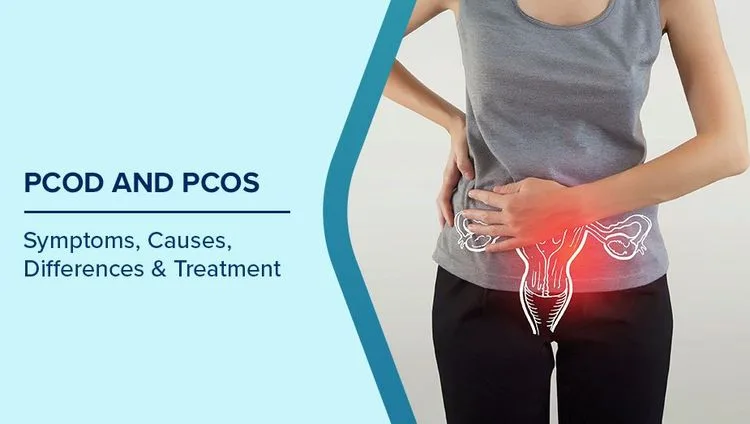High rates of obesity, dyslipidemia
Early diagnosis crucial for management
Lifestyle changes can prevent complications
Srinagar, Sept 06: There is a high prevalence of polycystic ovary syndrome (PCOS) among Indian women, with the majority of these women having one or more metabolic diseases, a study published in JAMA Network, a medical journal published by the American Medical Association, has revealed.
This vital study, conducted by a group of eminent clinicians and scientists, recruited women aged 18 to 40 years from November 1, 2018, to July 31, 2022. It covered five zones of India—North, Northeast, East, Central, and South—and included participants from eight states.
The study was aimed to estimate the nationwide prevalence of PCOS in India, examine the phenotypic spectrum, and assess the magnitude of comorbidities associated with PCOS. It said a total of 8,993 women participated in the study, with an average age of 29.5 years. Among them, 196 had already been diagnosed with PCOS, 2,251 were categorised as screen-positive, and 6,546 as screen-negative.
“Women who screened positive for PCOS were younger on average (28.1 years) than those who screened negative (29.7 years). They also had a slightly later onset of their first period (13.2 years vs. 13.1 years). Both differences were statistically significant,” the study said.
The vital study, published last year, indicated that the national prevalence of PCOS was 7.2% based on NIH 1990 criteria, 19.6% based on Rotterdam 2003 criteria, and 13.6% based on AE-PCOS criteria. Across all criteria, urban areas showed slightly higher prevalence rates, with prevalence decreasing with increasing age. When analysed by zones, Central and North India had the highest prevalences, followed by East and South India, with the lowest observed in Northeastern India.
“PCOS phenotypes C (40.8%) and D (24.6%) were the most common, while 492 women in the pre-PCOS group had either oligomenorrhea (75), hyperandrogenism (257), or polycystic ovarian morphology (160) only,” it said.
Among the 1,224 women with PCOS, 43.2% had obesity, 91.9% had dyslipidemia, 32.9% had nonalcoholic fatty liver disease, 24.9% had metabolic syndrome, 9.1% had impaired glucose tolerance, 3.3% had diabetes, and 8.3% had hypertension.
“The pre-PCOS subgroup (492 women) showed similar metabolic issues, with 79.3% having dyslipidemia, 15.9% having metabolic syndrome, 33.1% having nonalcoholic fatty liver disease, 12.6% having impaired glucose tolerance, 1.4% having diabetes, and 5.3% having hypertension.”
This nationwide, multi-centre, epidemiologic, cross-sectional study selected women via a stratified sampling procedure using voter identification cards from the 2011 Census of India. In this cross-sectional study of reproductive-age women recruited across India, the prevalence of PCOS was high, with phenotype C being predominant. Most of these women had metabolic abnormalities. These findings are crucial for developing preventive and therapeutic strategies, potentially integrating PCOS management into national health programs.
As per the study, PCOS encompasses various reproductive and metabolic issues that may have transgenerational effects. Prevalence rates of PCOS vary widely both globally and within India. This nationwide study reveals a high prevalence of PCOS across the country. Most of those affected also experienced comorbidities, such as hypertension, metabolic syndrome, abnormal glucose tolerance, obesity, and dyslipidemia, which contribute to the increasing burden of non-communicable diseases in India.
Dr Mohd Ashraf Ganie, Director of SKIMS Soura and the National Chief Coordinator of the flagship study of ICMR, New Delhi, said that this landmark study highlights the high prevalence of PCOS among Indian women and its strong association with metabolic disorders.
He said that understanding these findings is crucial for developing preventive and therapeutic strategies, especially in regions like Kashmir. “Adopt a healthy lifestyle with regular physical activity, balanced nutrition, and stress management. Early diagnosis and medical consultation are key to preventing long-term complications,” he said.
He also noted that common signs include irregular periods, excessive hair growth, acne, weight gain, and difficulty conceiving. “If experiencing these symptoms, women should seek medical evaluation, including hormonal tests and ultrasounds, for an accurate diagnosis.”
SKIMS has a dedicated ‘PCOS Clinic,’ a one-stop facility to provide holistic management to women with PCOS.






